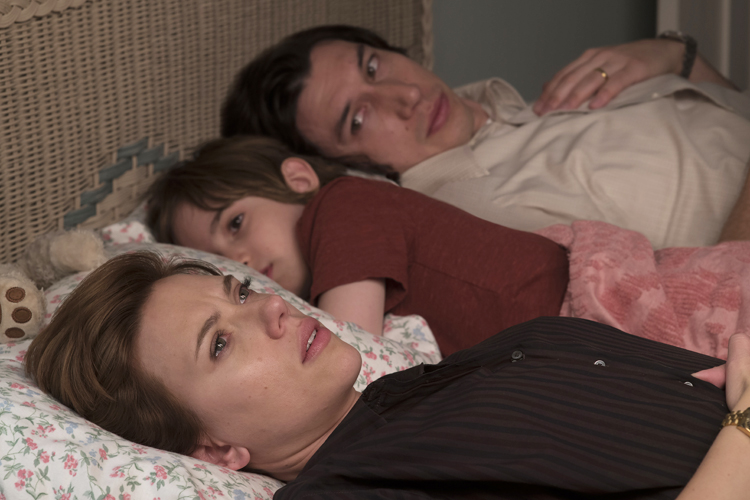Writer/director Noah Baumbach has made quite the career out of writing what he knows. One thing he knows is movies—both of his parents were celebrated film critics—and another thing is, unfortunately, bitter divorce. The timing of his divorce from actress Jennifer Jason Leigh prompted much speculation: Baumbach and Leigh co-wrote the 2010 film Greenberg, a film that starred Greta Gerwig; months after Greenberg’s release, Baumbach and Leigh filed for divorce, despite Leigh having just given birth to their son; shortly after that, Baumbach and Gerwig began dating. The closeness of these events led to notions that the separation wasn’t amicable, but if Baumbach’s latest film Marriage Story is any indication, it was more difficult than gossip journalists could’ve possibly imagined.
The title Marriage Story, like much of Baumbach’s work, is dripping with comedic irony. This is decidedly not a marriage story; it’s the story of a relationship rending apart. It’s the story of Nicole and Charlie Barber, a talented actress and a theater director, as they separate on separate sides of the country. Charlie’s a New York man—that’s where he started his theater company and helped Nicole achieve stage prowess—but Nicole has recently moved to L.A., as Charlie had long ignored her dream of relocating to Hollywood. Caught in the crossfire are their young son, Nicole’s doting family, and a rotation of variously effective divorce lawyers.
Despite Baumbach’s personal connection to Charlie’s character, his screenplay takes care to castigate and vindicate both parties. Decades of writing character-centric movies has honed Baumbach’s ability to craft multifarious humanity, and Marriage Story finds him at the height of his talent. Nicole and Charlie contain universes of flaws, hopes, conflicts, regrets, virtues, capacities for making meaning—and with the restraint of a seasoned screenwriter, Baumbach avoids building scenes that flaunt whatever aspect is currently most operable in the divorce process. Rather, these characteristics are, unlike the people they belong to, inseparable, hiding and colliding in coded communications that are contextualized by the world around them. In fact, we get to know these contextual elements—sexism, status, the legal system—far better than we get to know Nicole or Charlie. Baumbach obfuscates their characters by only allowing us to see them through the lens of their ex-partner: the film begins with Nicole and Charlie narrating their descriptions of one another, ensuring that even when they’re not sharing a scene, our perception of either of them is colored by the view of the other.
Marriage Story is replete with these brilliant manipulations. It becomes impossible to root for only one of the two, and eventually, rooting for both of them is inextricable from anticipating their divorce. Nicole and Charlie are developed so well as individuals that their separation just feels like growth—becoming who they always were, a woman named Nicole and a man named Charlie, not one flesh named “Nicole and Charlie”. Scarlett Johansson and Adam Driver really sell how excruciating these growing pains are: in a miraculous feat of expressing love and hate and everything in between, both actors shine at an intensity that burns the emotional spectrum from end to end. Their harshest fight is the hardest argument to watch since Before Midnight, and a bit where they each perform a song from Sondheim’s Company is the most moving example of art using art in recent memory.
Marriage Story is a thorny, tough movie, resistant to compartmentalization and paradigmatic of the complexities of romance. It’s also funny, heartwarming, heartbreaking, and achingly authentic—an unmissable portrait of people facing their most human challenges, together and apart.
★★★★★ (5/5)




